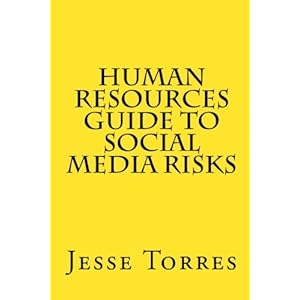
Over the past two to three years most organizations have concluded that social media can provide a reasonable, if not, tremendous return on investment, despite the difficulty in coming to an agreement regarding how to best measure ROI.
More than anything else, these days it appears that the control of the brand and the associated reputational risks are what keep executives from fully diving in. There exists a fear among many executives and other stakeholders that entering the world of social media means giving up control of the message and of the brand. But what these people have failed to realize is that they already lost control of their brand - regardless of their adoption of social media.
Web 2.0 developed a bond among peers. This peer-to-peer phenomenon is what recently created historic change in Egypt. The same peer-to-peer phenomenon that took messaging/influencing control away from Egypt and gave it to its citizens, has similarly affected EVERY organization's ability to control its brand. As social networks, microblogs, blogs, peer review sites and other social media platforms continue to gain popularity, organizations continue to lose control.
Two easy social media and banking examples of the loss of control are the U.S. Bank Sucks and Bank of America Sucks Facebook pages. In both cases the banks have lost the ability to completely control the messaging. In these examples, peers are sharing with other peers their experiences for the collective benefit of the "community." Once these experiences are documented, consumers can compare the collective experience of the community to the messaging being delivered by the organizations to determine next steps.
More than anything else, these days it appears that the control of the brand and the associated reputational risks are what keep executives from fully diving in. There exists a fear among many executives and other stakeholders that entering the world of social media means giving up control of the message and of the brand. But what these people have failed to realize is that they already lost control of their brand - regardless of their adoption of social media.
Web 2.0 developed a bond among peers. This peer-to-peer phenomenon is what recently created historic change in Egypt. The same peer-to-peer phenomenon that took messaging/influencing control away from Egypt and gave it to its citizens, has similarly affected EVERY organization's ability to control its brand. As social networks, microblogs, blogs, peer review sites and other social media platforms continue to gain popularity, organizations continue to lose control.
 |
| Egyptian Citizens Take Control Through Peer-to-Peer Social Media Tools |
Organizations' biggest challenge is getting their heads around the fact that they no longer have total control of the brand. In this environment, organizations are challenged to be the best they possibly can be in order to minimize harm to the reputation of the organization.
Fortunately for those that deserve it, the loss of brand does not always have to work against an organization. In her blog post "SXSW: Rules Of Brand Fiction From Twittering Mad Men," Janneane Blevins demonstrates that loss of control over the brand can also provide positive outcomes. In this case, some fans (not the producers) of the television hit "Mad Men" created social media personas for the Mad Men characters. These individuals enhanced and created further demand for the Mad Men brand. According to Ms. Blevins, the fans that created the social media personas of Mad Men characters "were able to use brand fiction to engage a whole new audience."
Therefore, organizations need to get over the issue of control - and quickly. Organizations no longer hold the same control over the messaging and their brand. Whether or not an organization is actively using social media, social media may be actively using the organization. The best approach to getting over the fear of the unknown is for organizations to become familiar with the risks and then develop a strategy that fits the organization's risk appetite.
Doing nothing and ignoring the influence of social media is no longer an option and may be considered a form of negligence.
Therefore, organizations need to get over the issue of control - and quickly. Organizations no longer hold the same control over the messaging and their brand. Whether or not an organization is actively using social media, social media may be actively using the organization. The best approach to getting over the fear of the unknown is for organizations to become familiar with the risks and then develop a strategy that fits the organization's risk appetite.
Doing nothing and ignoring the influence of social media is no longer an option and may be considered a form of negligence.



